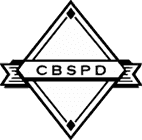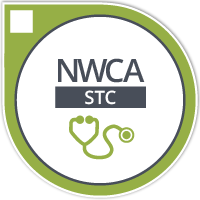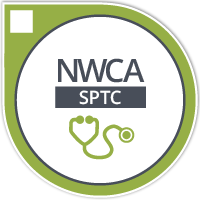Sterile Processing & Surgical Technologist
Online Certification Course from Southeast New Mexico College
Program Description
Surgical and Sterile Prep Technicians are members of the surgical and support teams working under the supervision and authority of the surgeon within the scope of practice of state law and hospital policy. These surgical team members help prepare the operating room by setting up sterile surgical instruments, equipment, supplies, and medications. They check to ensure that all equipment is in the proper place and working properly. They also assist the surgeon in donning PPE as well as transport the patient to the OR, position and drape the patient for the specific procedure, prepare the skin for the procedure, and assist the surgeon as needed during the procedure. The sterile processing part of the job requires workers to perform and participate in decontamination, cleaning, assembling, packaging, scanning, sterilization, storage, and distribution of reusable surgical instrumentation and equipment.
This course provides an introduction to the surgical technologist career, role in the operating room, and foundational concepts. Course content includes medical terminology and anatomy and physiology foundations, reading and interpreting prescriptions and defining generic and brand names drugs, understanding central service processing in healthcare facilities, microbiology and infection protection, instrument and equipment transport, cleaning, and decontamination and much more! This course covers the following key areas and topics:
- Operating room roles and responsibilities
- Medical terminology, human anatomy, physiology, and medical conditions.
- Proper infection control procedures and practices for patient care
- Sterile surgical environment
- Surgical instruments, equipment, supplies, materials, and medications for general and specialized surgical procedures.
- Preparing the patient for a surgical procedure
- Caring for the patient during a surgical procedure
- Caring for the patient after the surgical procedure.
- Preparing the surgical environment for specific procedures.
- Selected surgical procedures including the role of the surgical technologist.
- Medical laws and ethics related to surgical procedures
- Effective communication and patient care strategies
- SPD functions and safety precautions
- Health and safety regulations, standards, and guidelines that apply to the processing of medical devices and instrumentation
- Anatomy and physiology relate to the work performed in the sterile processing department
- Basic factors in disease transmission and defenses against infection
- Regulated medical waste and non-infectious waste
- Bloodborne pathogens
- Quality decontamination processes
- Personal protective equipment (PPE) as it relates to OSHA regulations and employee safety and health
- Chemical disinfection functions
- Disinfecting agents used in the decontamination process
- Disassembly, cleaning, disinfecting, inspecting, reassembling, testing, storing, and distributing movable patient care equipment
- Instruments sets, preparating basins and textile packs
Program Objectives
After completing this program, learners will be able to:
- Explain the role of the surgical technician in the operating room and as part of the surgical team.
- Use proper medical terminology based in human anatomy, physiology, and medical conditions.
- Explain proper infection control procedures and practices required in patient care and in the sterile surgical environment.
- Identify the surgical instruments, equipment, supplies, materials, and medications used in general and specialized surgical procedures.
- Explain the procedures performed in preparing the patient for a surgical procedure, caring for the patient during a surgical procedure, and caring for the patient after the surgical procedure.
- Explain how to prepare the surgical environment for specific surgical procedures.
- Explain selected surgical procedures including the role of the surgical technologist.
- Discuss the medical laws and ethics related to surgical procedures and the surgical technologist position.
- Explain effective communication and patient care strategies used for a variety of surgical patients including those with special needs.
- Describe various functions of SPD
- Identify the health and safety regulations, standards, and guidelines that apply to the processing of medical devices and instrumentation
- Define anatomy and physiology, explain how they are related, and understand how anatomy and physiology relate to the work performed in the sterile processing department
- Understand the basic factors in disease transmission
- Describe the body’s defenses against infection and the factors that affect the body’s susceptibility to disease
- Distinguish between regulated medical waste and non-infectious waste
- Explain bloodborne pathogens and the safety precautions necessary in SPD
- Outline the standards required for a quality decontamination process
- Understand the appropriate dress code and the role of personal protective equipment (PPE) as it relates to OSHA regulations and employee safety and health
- Describe functions performed during chemical disinfection
- Describe the procedures that must be followed and the precautions that must be observed during the preparation and use of the variety of disinfecting agents used in the decontamination process
- Identify the processes needed to effectively disassemble, clean, disinfect, inspect, reassemble, test, store, and distribute movable patient care equipment
- Understand the organization of instruments sets and the preparation of basins and textile packs
Certification Opportunities
Students who complete this Southeast New Mexico College Surgical Tech and Sterile Processing Technician Certificate Program may be eligible to sit for the American Allied Health (AAH), the Healthcare Sterile Processing Association (HSPA), the Certification Board of Sterile Processing (CBSPD), the National Healthcare Workers Association (NHCWA) and the National Workforce Career Association (NWCA) national certification exams - provided that they meet certain requirements which may include hands on scrubs and or practical experience through either a Clinical Externship and or Employment Experience. In addition to successfully completing the certification exam, candidates may be required to submit additional documentation to maintain certification.
Disclaimer: This Surgical Technologist and Sterile Processing Technician program is not an associate degree and/or Commission on Accreditation of Allied Health Education Programs (CAAHEP) - approved program, which requires a 1 to 2-year associate degree credit program. However, there are multiple employment opportunities for students in the following job titles including but not limited to:
-
Surgical Technician (ST)
-
Operating Room Assistant (ORA)
-
Surgical Scrub Technician (SST)
-
Peri-Operative Assistant (POA)
-
Endoscopy Technician (ET)
-
Sterile Processing Technician (SPT)
Prospective students are advised that Southeast New Mexico College cannot guarantee that any particular employer will require or accept any certification for employment purposes. Prior to enrolling, students should determine whether certification is needed or sufficient for the type of employment they are seeking.
Job and Externship Placement Services
Regardless if you elect to pursue national certification or not, if you enroll and successfully complete this program, assuming you pass a background check and drug screen, you will have guaranteed access to our Ready to Work (RTW) Job and Externship Placement services. All students who successfully complete this program (and pass a background check and drug screen) will have access to the RTW Externship or Job placement services at no additional cost.
Requirements
- High School Diploma or GED
Program Details
- Mobile-Ready
- National Certification Opportunity
- All Textbooks & Materials
- 24/7 Learner Support
- Certificate of Completion
- Clinical Externship Opportunity




